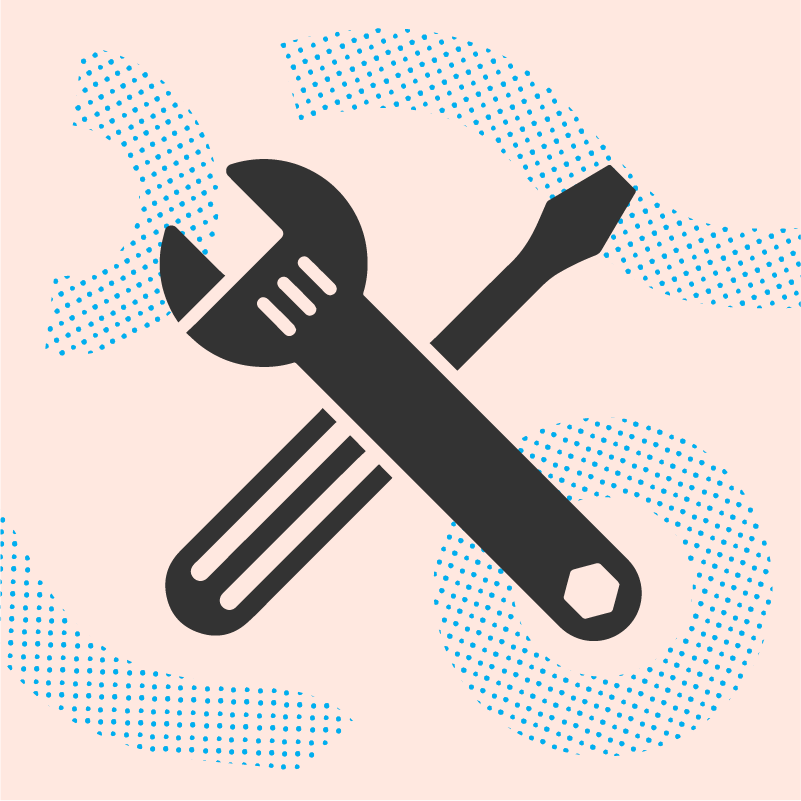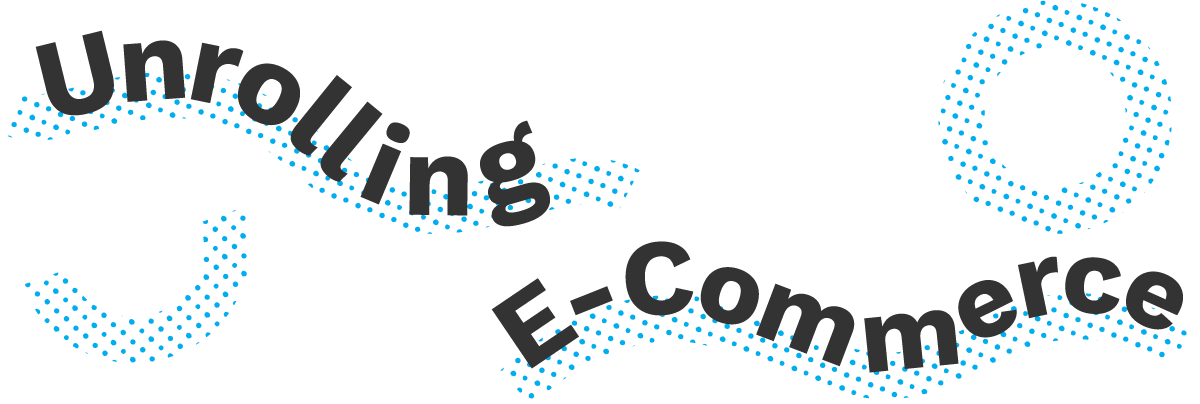
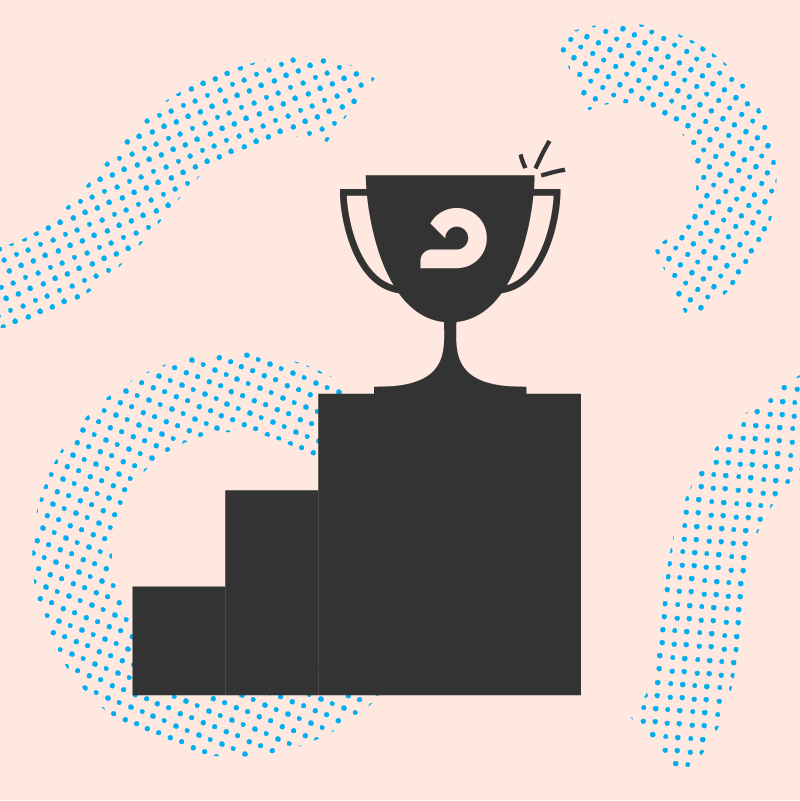
How Ambitious Brands Get Their Start: Inspiring founder stories Episode
Subscribe
Episode Guests
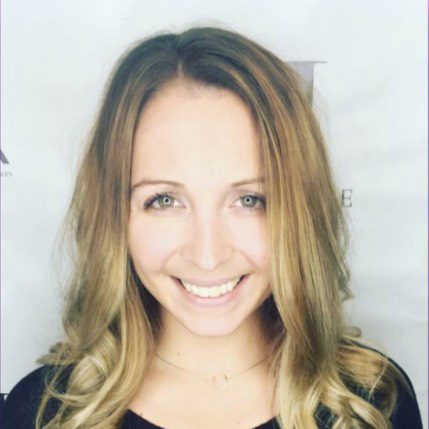
Caroline Culbertson
Director of Marketing, Betabrand
Caroline describes herself as ‘a curious marketing and ecommerce maven with a history of applying creative solutions to amplify brand positioning while driving growth’. Betabrand designs amazingly comfortable clothing for women who like to stay active all day long. Dress Pant Yoga Pants, Yoga Denim, travel wear, and more.
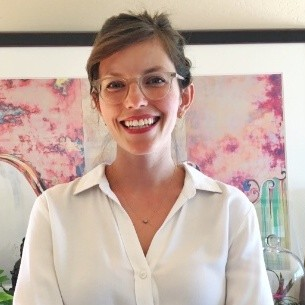
Renée Christensen
Marketing Director at Léon & George
Léon & George make it easy to bring beautiful, quality greenery into your space. Their curated plant and pot sets make a stylish and sustainable addition to any modern interior design. Each set includes the plant, pot, delivery, and lifetime plant care support to keep leafy housemates happy and healthy for years to come.
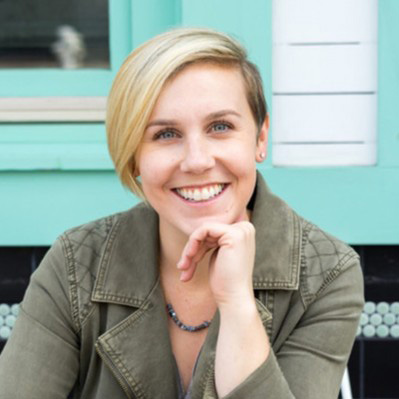
Kelsey Moreira
After getting sober in 2015, Kelsey rediscovered her passions in the kitchen and wound up ditching a 10-year tech career at Intel to open Doughp in 2017. An edible, bakeable, and ridiculously tasty cookie dough company on a mission to make the world a little sweeter.

Kari Sapp
Goodboy is a direct-to-consumer dog supplement company, helping pet owners quickly identify health issues and goals, in turn, providing them with high-quality supplements that specifically target their dog’s needs. Founded in 2019, Goodboy offers its line of premium supplements in recurring deliveries, shipped directly to your door, on a schedule tailored to each individual dog.
Resources
- Unrolling: The Goodboy Brand [AdRoll Blog]
- Unrolling: Betabrand [AdRoll Blog]
Transcript
On today's episode ‘How Ambitious Brands get their Start’.
Doughp: ‘My concept
with the brick-and-mortar decision-making was really to
try and get the Doughp name in front of
as many people as possible,
as quickly as possible, and have that real in-person connection.
Looking at going into a Safeway off the bat
or getting into Costco off the bat or something…
Us just being a little jar
or container on a shelf wasn't going to speak as much about who are, my story,
what we care about, our donations to mental health and addiction recovery.
Those elements are really hard to come across when you're just on a shelf.
So the storefronts became more of an immersive opportunity’.
Leon & George: ‘They knew they wanted to start something and they were kind of,
you know, chatting about different
ideas, but they realized that there was this big opportunity with plants.
Getting plants was actually kind of difficult, both living in San Francisco apartments, the
traditional experience of going to buy plants,
you know, most people go to big box retailers Like Home Depot
or Lowe's and there's an opportunity to streamline the
experience and make it a little bit more personalized
and a little bit more in touch with the modern consumer’.
There is no guaranteed way to succeed as an entrepreneur.
In fact, most credit repeated failure as a path to success as the founders.
They can come from any type of Industry, any background, and any age group.
For this episode we thought we'd share some stories from entrepreneurs who beat the odds, learnt the lessons,
and have successfully launched their companies.
Let's start with Kelsey from Doughp, delicious cookie dough that can be eaten baked or raw.
Since launching Doughp in 2017 Kelsey has featured on Shark Tank
and made this year's Forbes 30 Under 30 List.
Here's how what started as a half-baked idea, became a brilliant business.
Doughp: It's still kind of surreal to say I run a cookie dough company
for a living, but if you take it way back,
so I spent 10 years working in tech.
I started that until when I was just 16 years old
and through that sort of like immediacy into corporate life at the fast-paced environment,
I was thrown into, I developed an unhealthy relationship with alcohol
as a means to kind of cope with the stress that I was enduring.
I was never really was able to come to terms with it
until 2015 when finally said enough was enough
and had the one final hurrah and said ‘I will just never have a drink of alcohol again’.
And now I'll be five years sober this September
so pretty cool to see what can happen in a relatively short amount of time.
Just the last five years a lot has changed.
So two years after getting sober I was heavy back into to
what makes Kelsey Kelsey, really following whatever I love to do and getting back to you know,
what we're my passions. What did I like outside of working or drinking?
I got to find a lot of new things that I loved
and one thing in particular from my childhood is baking a lot
and I started baking all the time, nights
and weekends outside of until I was baking truffles and cupcakes and all this stuff.
Just loving it. Started a small bakery
while I was in Oregon actually where I first got sober and then when I was moved,
For a new job inside of Intel to San Francisco sort of like,
you know the woes start to get you like I'll never make it.
I'm not I'm not a professional Baker. I can't do that.
So I kind of put it to the side
and once the entrepreneurial bug has bit someone who's meant to be an entrepreneur.
I don't know that you can stop the train. It's moving
so it wasn't very long before I really came up with
what my next idea would be and having been newly vegan at the time while I was in San Francisco.
I was baking as a relatively terrible vegan use In butter,
but leaving the eggs out.
So this trick I'd learned to make an egg substitute was working quite well
and I had cookie dough that was now really decadent
but I could bake half of it or eat half of it raw.
Yeah. We make legit cookie dough. You can eat it raw
or bake it and I love that balance
because the best part about cookie dough sneaking a few bites
and having the fresh baked gooeyness out of the oven
and the best thing about dope is you can like half bacon safely and enjoy it with some ice cream.
So you don't have any concerns over pulling it out a little gooey
and scraping it over the ice cream and I'll stop before everyone starts.
Join, but yeah, so I mean day one if you go way way back,
you know Dolores Park very popular Park in San Francisco
and it was for 20 2017 first day of my sabbatical with Intel.
So I was going to get a 10 week vacation for my 10 years of service there.
And so day one of it happened to be 420,
which I know the puns we just talked about but that audience also gets very hungry.
So I thought it was a great place to try selling dope and that was with just a cart.
I had literally for like five hundred dollars there
was As a tech shop like a wood shop in Soma
and built this rolling cart that I could disassemble and very accurately pack into a Prius,
you know, so if I called an Uber
or Lyft I knew exactly how to get this whole cart
and tent and everything said in there
and for the first six months
or so the majority of dopes wife was catering pop-ups
and doing spark social shout out to Carlos that spark social
for giving me a shot when I was so so young.
I don't even think I had the cart yet. I wrote spark social this food Park in San Francisco
and was like hello.
Have this Cookie Dough Company. I'd love to
sell and they're like within two hours like cookie dough.
Saw someone. Can you start in like, okay,
so business license health and help heck. I've gotta get a permit.
You know, it's like what do I need to do to make this happen
and lots of just like proving out that people really did like this concept before jumping into brick
and mortar,
which is something I constantly advising people who are like I want to open a restaurant tomorrow.
I'm just going to do it. It's like before you invest make sure people love your idea
or love your recipes and then my concept with the brick and mortar.
Decision-making was really to try
and get the dope name in front
of as many people as possible
as quickly as possible and have that real in-person connection
looking at going into a safe way off the bat
or getting into Costco off the bat
or something us just being a little jar
or container on a shelf wasn't going to speak
as much about who we are my story
what we care about our donations to mental health and addiction recovery.
Those elements are really hard to come across when you're just on a shelf.
So the storefronts became more of an immersive.
They are storefront on the Las Vegas Strip.
We have raw truth cards on the table.
So these prompting questions you can answer with family and friends.
We have a donation box. So they were getting to vote
for which nonprofit they like to receive the funds.
We've since updated where 1% of all of our sales are donated to Community
Counseling Center providing affordable mental health care
and substance abuse treatment.
So those storefronts like I said really gave that immersive experience
and now has helped us significantly when we made the decision to focus on ecommerce.
Immerse quite heavily in November of last year great timing
oddly and sadly given what happened with the pandemic to have turned our sights on ecommerce
and shut off some of the work we're doing with catering
and wholesale at a larger scale to really really tried get
ecommerce right getting onto Shopify platform
and really starting for the first time in advertising.
I used to joke that like the first two years are a budget was Zero.
We didn't run any ads it was very much.
So just word of mouth and the placement of our store product the globe.
Pet Care Market size was estimated at over a
hundred and thirty billion dollars in 2016 and is expected to exceed 200 billion dollars in 2025.
When Carrie saps beloved dog was diagnosed with cancer.
She discovered a gap in the market
for personalized supplements that support your dogs overall well-being and health conditions.
They'll launch of good boy was just was really personal for me.
So I don't know she might make her way in here at some point,
but my dog Finley Lie about it was kind of right at the Inception of good boy,
at least the idea. She was diagnosed with cancer kind of right out of the blue.
And so she was four at the time.
So she was really really young and really otherwise healthy.
So we just kind of threw me for a loop.
I just I don't know if anyone ever expects their dog to get sick,
but it just took me my took me by surprise
and just kind of got me thinking like am I doing enough for her?
Outside of just like giving her a really good exercise routine and the quality dog food.
I just like I really just wanted to do more
for her not only like during her treatment process
but during her recovery to so personally speaking that was kind of like the inspiration for me.
It just kind of gave me that kicked to really start this brand that's you know,
really really focused on just general Pet Health,
but really long ERM Health as well.
I think a lot of times people do forget about that their pets.
They really focus on it for for themselves,
but that long-term care is sometimes put to the Wayside or pets so mainly was really like I said,
she was she was an inspiration at least for me personally.
I actually teamed up with my co-founder Stephen to create a boy as well.
So kind of in the past and how we kind of linked up.
I worked with Stephen.
He has a direct to consumer. Sock subscription company that he started about six years ago.
So for three years before good boy,
I did content marketing there.
So Stephen and I have been friends for a long time his mom was my preschool teacher.
So we have like grown up together, you know kind of parted ways for college post-college and then,
you know linked up when I moved back to Italy and about three years ago.
So we kind of teamed up again. He's a animal lover to our our dogs are really good friends as well.
So that was kind of how we teamed up
and then together we Forge the path
and started good boy basic brand coiled around trials has
that's corduroys that go horizontal not vertical
for a way more comfy fit launched in 2005.
The goal was to build a brand that behaves like a social network where
consumers interact with beta brand designers
as well as one another to inform
and accelerate the design process being a branch has been For several years now,
it started out as a menswear business actually
and the whole premise behind beta brand was that every day new design
ideas would appear on the site from crowdsourcing
so designers or amateur designers
or really any consumer with an idea could submit a design to Beta brand
and it would kind of act as like a Kickstarter
or a crowdfunding platform to get different apparel design ideas off the ground.
So we were primarily Menswear we had some kind of viral sensationalist hits back in the
day and then around like five six years ago.
We launched our first women's product called dress pant yoga pants
and that product really took off we sold through several batches.
We you know, exceeded the crowdfunding limits
and all that good stuff and the products just completely went viral
and really turned our business around and change the trajectory.
Victory of the business for the entire future of the company.
So we're even as little as like five years ago.
We were predominantly male store.
We're currently, you know, 99.9 percent of our business is from women
primarily through this product of dress pant yoga pants.
So the company has changed quite a bit in recent years to really focus on dress pant yoga pants dark
or product.
It has a cult following women really love it,
you know as I mentioned before Kind of the company started as this crowdfunding model.
That is something that we still do today.
Our design team is in direct contact with our customers on an ongoing basis to know.
What should we design next?
What colors of dress pant yoga pants should we release
what different style ways should we release
and we're releasing Now new ideas every single week
and culminating on Fridays with a live show where we actually launched new
products live on the website in a live video stream.
Not all companies stay on track
and on plan seeing a window of opportunity beta brand shifted their whole product from a menswear
brand prohibiting from a menswear business to a woman's wear business.
That was something that was a really interesting pivotal point in the company
and when it came down to it,
you know, we are an incredibly data driven company.
So when I talk about things like crowdfunding
and crowdsourcing ideas and polling our customers were,
you know, aggregating a lot of different data points around our customers and what they want.
Aunt so we're constantly kind of leveraging that data to make decisions to the business
and as it relates to you know,
being a venture backed, you know, startup mode retailer that's direct-to-consumer.
We're constantly in growth mode.
So when you know when we're looking at the kpi is of our business
and what's going to get us to meet our aggressive growth goals that we have laid out.
We need to chase whatever is the most efficient and what we saw in our data.
Was that you know by doubling down on dress pant yoga pants,
we were able to not only like sell more units
but by doubling down on that
as a product category and really driving a plethora of style
ways extended sizing colors all the bells
and whistles of a singular product.
We were able to also drive up our lifetime value of our customers.
So we were able to acquire customers more efficiently through this product,
but also get them hooked on.
Us as a brand because we were able to offer them follow on products to their initial purchase
Bates brand actually has roots in crowdsourcing the founders friends
and family with the first to fund its products.
We have kind of an interesting origin story our founder Chris lindland,
he came up with this product idea called quarter rounds
and the concept of these pants were corduroy pants,
but instead of the Corduroy Stripes,
I guess going up and And they would go like horizontally around
and he kind of like made up the silly product
and a bunch of his like friends and acquaintances were like that's actually really cool.
I want those so he made a prototype
and he worked with some local like production people here in San Francisco
and made the pants and I as he was kind of starting this like this was before Kickstarter.
So as he was, Kind of like launching this product before Kickstarter.
He you know, he needed to kind of take payment from people like upfront.
So he developed like a newsletter
and he would kind of he would Source feedback throughout the process from this,
you know, pretty, you know, smallish list of friends and acquaintances for this product.
So that's kind of like how the company got started
and that's kind of the idea of crowdsourcing
and crowdfunding like within the business like it was kind of like,
okay. Well now, This one product that kind of had some virality to it.
Like what if we created a company that like that's all they did was
work with their customers to make things Lyon
and George are a houseplant delivery service.
The company is named after their pets. They focused on the
opportunity to improve the experience with their sources
and Growers who traditionally don't have the best relationships
and experiences with big box retailers are founders,
Ron and Nico they Both also have mixed backgrounds kind of design engineering.
So they kind of from the beginning knew that they wanted this very like clean it kind of had
a vision for their aesthetic
and how they got started was they just really realized that there was they were friends
and they knew they wanted to start something and they were kind of,
you know, chatting about different
ideas, but they realized that there was this big opportunity was plans.
One of them is very much a green thumb and very into plants and you know,
they realize it's like getting plants was actually kind of difficult.
Those living in San Francisco apartments traditional experience of going to buy plants a lot.
You know, most people go to Big Box retailers Like Home Depot or Lowe's and you know,
the plants aren't always great. They're not stored very properly that's like one
issue and then you've got to get like the soil
and gotta find a pot and maybe you don't like the selection at Home Depot.
So you gotta go somewhere else and they just realized that there's this,
you know, there's an opportunity to you know,
kind of streamline the experience
and kind of make it a little bit more personalized and a little bit more in touch with the modern.
Zoomer and so that's kind of how they got started.
They started working with local Growers who normally would sell to these big box retailers
and hated it.
So this was an opportunity for them to kind of modernize as well.
And and yeah, that's how they they got started.
The company is named after their pets who love their indoor jungles as well.
George is Miko's parrot and Leon is Ron's cat.
So that's Leon and George found his Rona Nico identified an opportunity working.
With Growers which provided a much better experience
for everybody involved from Lyon on George to Farmers and providers as well as the customers.
So the big box retailers have a lot of buying power.
So they they would really just nickel-and-dime them.
So these Growers are you know, they may be a lot of times.
It's like an old-school like, you know family generational thing that they've been doing
it for years their parents did it
and there you know these Home Depot
and Lowe's they buy a lot of plants from them
and they buy them at very very Very low-cost really really like I said nickel and diming them.
So that was it's not great.
Also, they rush them a lot.
So, you know, it's like to meet the market demand like hey,
we really want you know, it's like this season. We need these plants and you know,
the Growers, you know plants they you know,
they do follow the seasons, but sometimes they need an extra week or two.
They don't it's not necessarily like a factory where you can produce XYZ product.
Sometimes it just it just takes longer and These big box retailers,
you know oftentimes they're a little bit forceful in terms of you know,
we need this plant by this day this batch by this date and then like I said,
they would receive the plans
and not even always store them properly and that's why when you go to these stores,
sometimes they don't look that great or they have this huge sale Section with you know,
kind of dying plants that you can buy for one dollar but it's still,
you know, it's a shame for this person who just spent a year of growing that
so in that sense a lot of the growth really unhappy working with them.
Thank you so much to dope good boy beta brand
and Leon and George for sharing their founding stories.
You can find links to all of the companies in our show notes.
We have a ton of free resources
for you at adroll from webinars
and blog posts to ebooks and livestreams go to audible.com /resources
for more information or you can always follow us on social media Instagram Facebook LinkedIn
and Twitter stay connected and get in touch.

